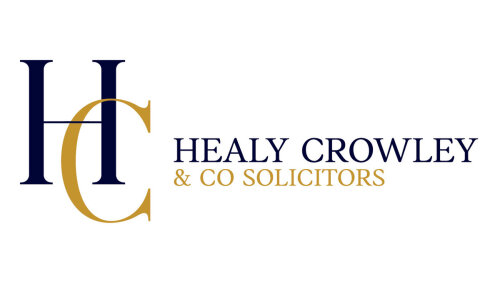Best Tax Lawyers in Ireland
Share your needs with us, get contacted by law firms.
Free. Takes 2 min.
Or refine your search by selecting a city:
List of the best lawyers in Ireland
About Tax Law in Ireland
Tax law in Ireland encompasses the regulations and legal guidelines governing how individuals and businesses pay taxes to the government. The Irish tax system is primarily administered by the Office of the Revenue Commissioners, commonly known as Revenue. Taxes collected include income tax, corporate tax, value-added tax (VAT), and capital gains tax, among others. Ireland is noted for its competitive corporate tax rate, making it an attractive destination for foreign businesses. Tax law in Ireland is complex and evolving, necessitating a sound understanding for both compliance and optimization of tax liabilities.
Why You May Need a Lawyer
Legal assistance in tax matters may be necessary in several scenarios:
- When facing an audit or investigation by the Revenue Commissioners.
- In cases of suspected tax evasion or fraud allegations.
- To negotiate settlements of tax debts or disputes.
- When navigating complex corporate tax arrangements, especially for multinational companies.
- To optimize tax planning and structuring for businesses and high-net-worth individuals.
- During inheritance and estate planning to understand potential tax implications.
- For guidance on personal income tax issues, particularly for those with multiple income streams or foreign income.
Local Laws Overview
Key aspects of Irish tax laws include:
- Income Tax: Ireland operates a progressive income tax system with different tax bands and rates depending on income levels.
- Corporation Tax: Renowned for its low rate of 12.5% on trading income, which applies to profits derived from trading activities.
- Value Added Tax (VAT): The standard VAT rate in Ireland is 23%, applied to most goods and services.
- Capital Gains Tax: Generally charged at 33% on the disposal of assets, barring certain exemptions and reliefs.
- Residential Property Tax: Local Property Tax (LPT) is based on the market value of residential properties.
- Double Taxation Agreements: Ireland has treaties with numerous countries to prevent double taxation on income and gains.
Frequently Asked Questions
What is the deadline for submitting an annual tax return in Ireland?
The deadline for filing a paper tax return is 31 October. For online submissions via the Revenue Online Service (ROS), the deadline is usually extended into November.
How is corporate tax calculated in Ireland?
Corporate tax is calculated on the profits of a corporation. The standard rate is 12.5% for trading income and 25% for non-trading income such as investment income.
What are tax credits, and how do they work?
Tax credits reduce the amount of tax you have to pay. These credits can vary depending on personal circumstances, with common examples being the PAYE credit and the personal tax credit.
How do I appeal a tax assessment by Revenue?
You can appeal a tax assessment by submitting an appeal to the Tax Appeals Commission within 30 days of receiving the notice of assessment.
What is PAYE, and how does it affect my earnings?
PAYE (Pay As You Earn) is a system through which income tax is deducted directly from your salary by your employer before you receive your net pay.
Are there any tax reliefs available for first-time home buyers?
Yes, the Help to Buy scheme provides relief for first-time buyers purchasing newly built homes. The relief is a refund of Income Tax paid over the previous four years.
What constitutes tax evasion, and what are the penalties?
Tax evasion involves illegal activities to avoid paying taxes, such as underreporting income. Penalties can include fines, interest on unpaid taxes, and prosecution.
How is VAT collected and reported?
VAT is generally included in the price of goods and services and is reported and paid to Revenue by businesses via VAT returns.
Do I need to pay taxes if I inherit property?
Yes, Inheritance Tax, known as Capital Acquisitions Tax, may be applicable, subject to certain thresholds and exemptions.
What resources are available for calculating my taxes?
Revenue provides an online tax calculator to help individuals estimate their tax liabilities based on income and credits.
Additional Resources
Consider the following resources for further information and assistance:
- Revenue Commissioners: The primary governmental body for tax administration in Ireland.
- Citizen Information Service: Offers general information on tax obligations and rights.
- Consultation with a Chartered Tax Advisor: Particularly useful for complex tax advice and planning.
- Professional Bodies: Organizations like the Irish Tax Institute provide resources and guidance.
Next Steps
If you require legal assistance for tax matters in Ireland, consider the following steps:
- Identify the specific tax issue you are facing.
- Research and contact qualified tax lawyers or accountants who specialize in the relevant area.
- Gather all necessary documentation related to your tax affairs before consultations.
- Discuss the potential costs and outcomes with the legal professional.
- Ensure any actions taken are documented and in compliance with legal advice and applicable laws.
By following these steps, you can navigate the complexities of tax law with greater confidence and assurance of compliance.
Lawzana helps you find the best lawyers and law firms in Ireland through a curated and pre-screened list of qualified legal professionals. Our platform offers rankings and detailed profiles of attorneys and law firms, allowing you to compare based on practice areas, including Tax, experience, and client feedback.
Each profile includes a description of the firm's areas of practice, client reviews, team members and partners, year of establishment, spoken languages, office locations, contact information, social media presence, and any published articles or resources. Most firms on our platform speak English and are experienced in both local and international legal matters.
Get a quote from top-rated law firms in Ireland — quickly, securely, and without unnecessary hassle.
Disclaimer:
The information provided on this page is for general informational purposes only and does not constitute legal advice. While we strive to ensure the accuracy and relevance of the content, legal information may change over time, and interpretations of the law can vary. You should always consult with a qualified legal professional for advice specific to your situation.
We disclaim all liability for actions taken or not taken based on the content of this page. If you believe any information is incorrect or outdated, please contact us, and we will review and update it where appropriate.
Browse tax law firms by city in Ireland
Refine your search by selecting a city.
















